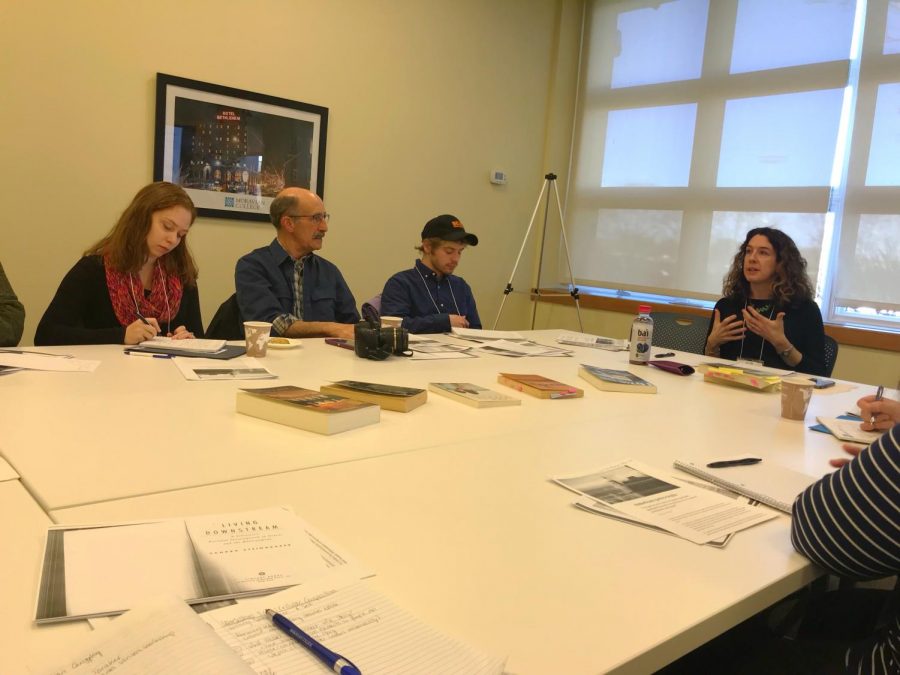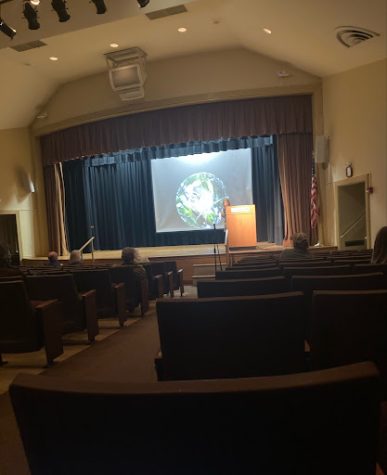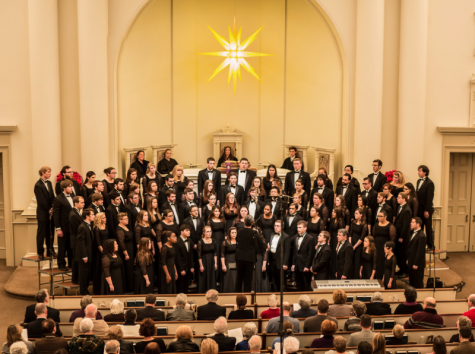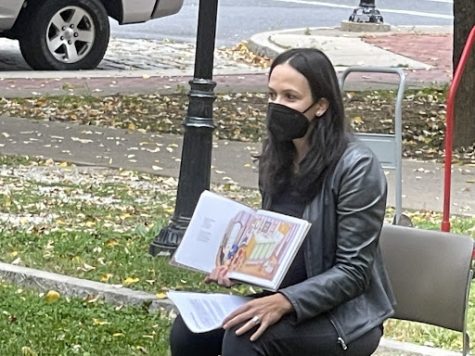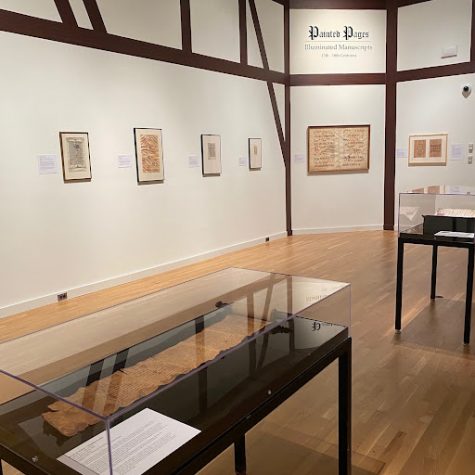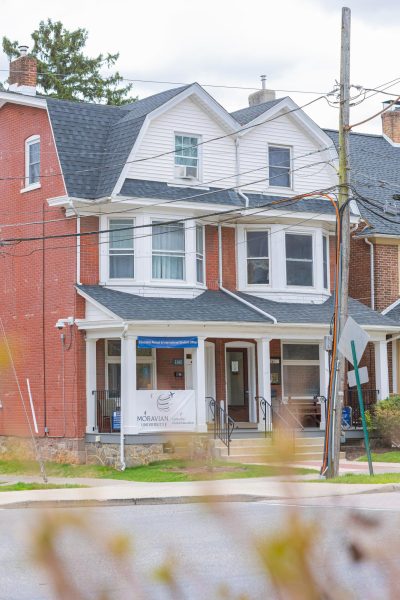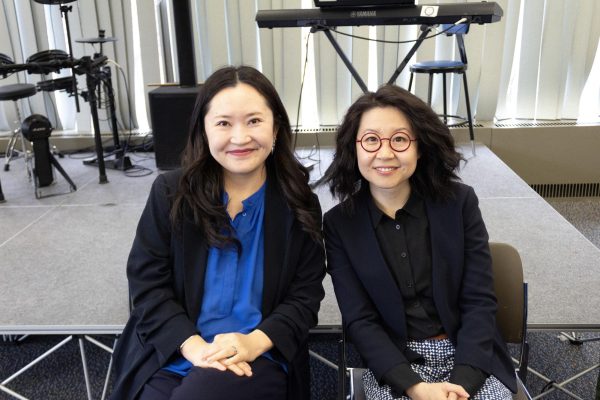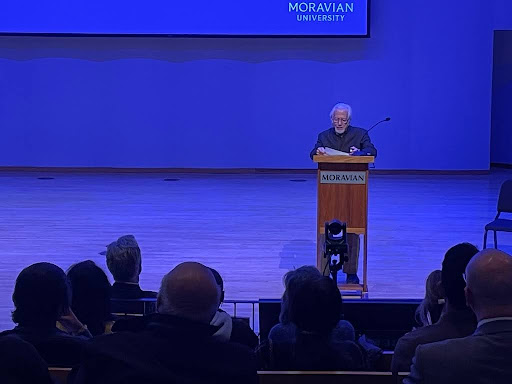Medical Narratives and Advocacy at the Moravian Writers’ Conference
While some people were getting ready to celebrate their Irish heritage on the St. Patty’s Day weekend of Mar. 16 and 17, others were channeling their creative juices and getting the ink flowing at the 4th Moravian Writers’ Conference. Attendees travelled from near and far to participate in workshops, book signings, and the keynote address, all of which focused on the theme of writing and healthcare.
According to Joyce Hinnefeld, chair of the English department and director of the conference, approximately 45 participants registered for both Friday and Saturday sessions.
Friday’s schedule of events began at 4:00 p.m. with a screening of the film “Big Pharma: Market Failure” in Prosser Auditorium, an opening reception in the HUB Pavilion, and a reading in the Arena Theatre at 6:30 p.m.
Readers included conference presenters Nina Angela McKissock, Mary Heather Noble, Gillian Pidcock, Fran Quigley, and keynote speaker Marie Myung-Ok Lee.
Workshops were held on Saturday in various locations in the HUB. The different workshops were on memoir, creative nonfiction, and writing and advocacy.
After lunch, keynote speaker Marie Myung-Ok Lee, a would-be doctor turned writer and author of the novel, “Somebody’s Daughter,” read an essay about her journey to becoming a writer, which started in medicine and ended in her writing about medicine.
“The trend towards narrative medicine allows healthcare physicians ways to treat their patients using narrative,” said Lee. “It’s about trying to find a story and making sure the language accurately represents what is going on involving medicine.”
In her workshop, “Cellular Composition: Writing Water, the Environment, and the Self,” Mary Heather Noble focused on the power that personal narrative has to connect readers to medical stories.
The exercise for the workshop involved participants reading examples from three different excerpts from authors who inserted their personal stories into environmental health-related issues. Participants then responded to three brief prompts that focused on the ambiguity of home, the dramatic power of silence and secrets, and the ability of specific memories to spark a connection to a larger issue. The goal was to explore in our writing the connection between personal story and how it supports the bigger picture.
“Storytelling is the most primitive, intuitive, effective method of activism. It’s a clear witness to human emotion,” said Noble.
Among the attendees of Noble’s workshop were members of the community: Debra Orben, Jim Hauser, and Suzanne Irvine.
“I liked that there were two stories happening simultaneously,” said Orben. “The personal helped to tell the bigger picture.”
“Writing allows people to tell the truth, to face those realities, and put them into language, which is really courageous,” said Hauser.
Irvine agreed, saying, “It’s part of the narrative. You can’t help someone heal if you don’t know the context.
Nina McKissock, a hospice nurse and author of “From Sun to Sun,” focused on her experience with her own patients as a nurse. She kept journals for 14 years and showed how incorporating the small details grounds the story in relatability.
According to Jon Fiore ‘18, the biggest takeaway was that “even if you have obscure details, it all ends up flowing together in the end. By writing about stories that aren’t heard, you get a deeper sense of humanity.”
In their workshop “The Power of the Pen for Health Justice: How and Why Writers Can Advocate for Health as a Human Right,” Fran Quigley and Vince Mondillo emphasized that it is not the patient’s fault that he or she is a victim of a system that oppresses doctors but that it is responsibility to advocate for themselves in the power struggle between big pharma and insurance.
Liliana Irvine, a sophomore at Bucknell University, attended the workshop and commented that, “writing is about human vulnerability and sharing the human experience. Those in the healthcare system need writers to advocate for them.”
Dr. Diane Husic, dean of the School of Natural and Health Sciences, attended the conference to further explore the intersection between writing and healthcare.
“Creative writing can reach people in ways to take action that data might not,” said Husic. “The connection between writing and healthcare is valuable to be able to communicate better.”
Alumni Jonathan Clark ‘16, now an admissions counselor at Moravian, spoke about his passion for the subject.
“There needs to be an overarching understanding of what is going on in the world with people in relation to health advocacy,” said Clark. “A personal narrative can be interwoven to have that personal connection.”
In her keynote talk, Marie Myung-Ok Lee spoke about her personal journey involving writing and healthcare. Her father, a doctor, wished for her to follow in his footsteps, but she ultimately switched her career path to writing.
“Medical writing is not just about writing. It consists of sharing the narrative, and shaping the tools that we have,” said Lee.
She emphasized how writing plays a crucial connection to understanding health-related issues. Lee inspired attendees to believe that writing about the medical world can help get people the care that they need. People can’t find the story, she said. It’s about letting the story find you.
“My influences are my influences,” said Lee. “Nobody else can write your story.”


